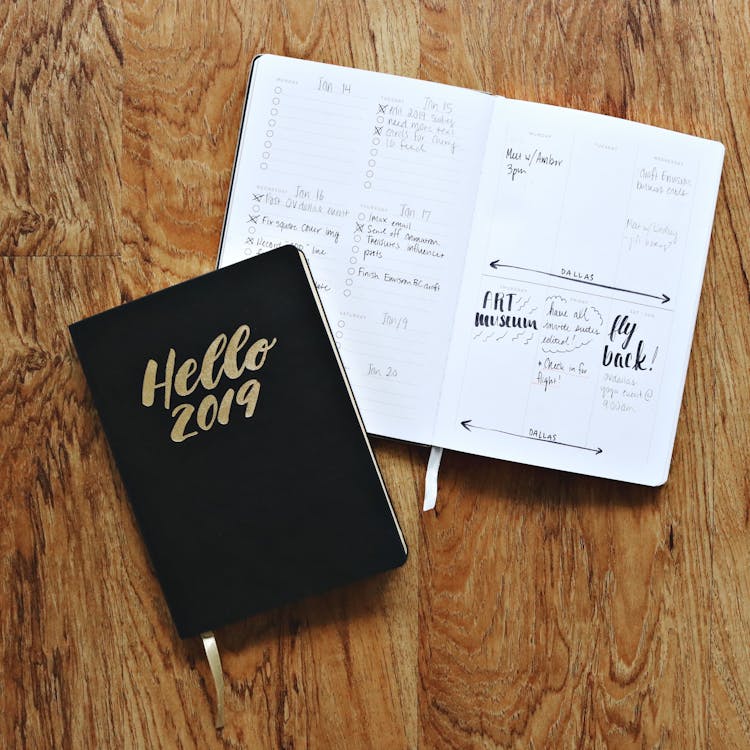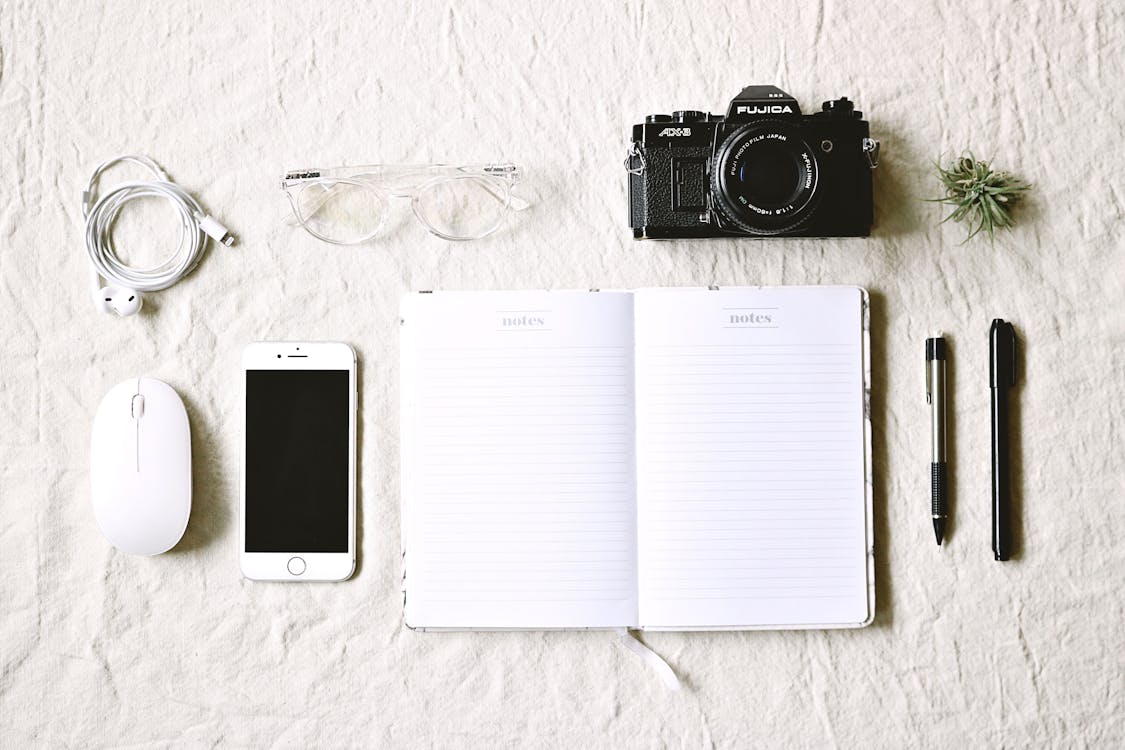Why Journal?
Journalling can be a great way to help improve your mental health. It can be a daily diary that you can look back on to see how far you've come, or a way to track your thoughts and emotions. Journalling can also help with accountability - you can look back and see if you've stuck to your goals, or if there are areas you need to work on.

The benefits of journaling
Journaling has many benefits. It can help you process difficult emotions, work through problems, and make better decisions. It can also help you track your progress over time and see the positive impact journaling has on your life.
Some of the benefits of journaling include: -Improving your mental health -Helping you process difficult emotions -Working through problems -Making better decisions -Tracking your progress over time -Seeing the positive impact journaling has on your life
How to get started
It can be tough to know how to start journaling, but the important thing is to just get started! Just like with any habit, the more you do it, the easier it gets. Here are a few tips to help you get started:
1. Find a journal that speaks to you. This might be a physical journal that you write in by hand, or it might be a digital journal that you keep on your computer or phone. There are even journals designed specifically for different types of journaling, such as gratitude journaling or creative writing.
2. Set aside some time each day (or each week) for journaling. This doesn’t have to be a huge chunk of time – even just 10-15 minutes will do. And if you can’t find time every day, don’t worry! Even once a week is better than nothing.
3. Brainstorm some ideas of what you want to write about. If you’re not sure what to write about, try prompts such as “what are three things I’m grateful for today?” or “what was the best part of my day?” You can also use your journal as a place to vent about your frustrations or worries – sometimes just getting them out on paper (or screen) can help them feel less daunting.
4. Don’t worry about being perfect. The whole point of journaling is to get your thoughts and feelings down on paper (or screen), so don’t worry about spelling or grammar mistakes – just let it all out!

What to Write About
The great thing about starting a journal is that there are no rules. You can write about whatever you want, whenever you want. It's a completely blank canvas. You can use your journal to vent about your day, track your mental health, or just make a log of what you did.
No matter what you write about, starting a journal can be a great way to boost your mental health and accountability.
What to include in your journal
When you first start journaling, it can be difficult to decide what to write about. You may feel like you need to document every little detail of your life in order to make it "worth" journaling, but that's not the case!
You can write about whatever you want, and your journal doesn't have to be a minute-by-minute account of your day. In fact, it's often more helpful to focus on specific topics or themes.
Some ideas of things you could include in your journal:
-Your thoughts and feelings about current events
-Stories from your childhood
-Recounting memorable moments from your life
-Musings about your hobbies and interests
-Ideas for creative projects -gratitude lists
-Rants about the things that bother you
-Daily/weekly goals and reflections on progress
-Brainstorming solutions to problems you're facing Remember, there are no rules for journaling
–– just write whatever comes to mind!
How to structure your journal entries
structures your journal entries, you’re more likely to maintain the habit of writing in your journal on a regular basis. In addition, having a structure for your journal entries will help you to make the most of the time you spend writing. If you’re not sure how to structure your journal entries, here are a few ideas to get you started.
Date and time: Include the date and time of day at the top of each entry. This will help you to keep track of when you wrote each entry, and it can also be helpful to refer back to specific entries when you want to remember what was going on in your life at that time.
Topic: Each entry should have a main topic, or focus. This could be something that’s happened during the day that you want to write about, or it could be a specific issue or problem that you want to explore in more depth. Having a topic will help you to stay focused while you’re writing, and it will also make it easier for you to find specific entries later on if you need to refer back to them.
Entry: Once you’ve chosen a topic, start writing about it. Don’t worry about how long your entry is or whether it makes sense – just let the words flow onto the page. You can always go back and edit your entry later if you want to, but for now, just let yourself write without inhibition or judgment.
Conclusion: When you’re finished writing about your chosen topic, take a few minutes to reflect on what you’ve written. What are your thoughts and feelings about the topic? What insights have you gained? These reflections can be included as part of your journal entry, or they can be written down separately as a way of helping you to close off each journaling session
How to Make Time for Journaling
Journaling can be a great way to boost your mental health and hold yourself accountable, but it can be hard to find the time to do it. One way to make time for journaling is to set aside a specific time each day to write. For example, you could journal first thing in the morning, or right before bed. If you can't find time during the day, try setting aside 10-15 minutes on the weekends to write.
Tips for making journaling a habit
If you're looking to make journaling a habit, here are a few tips to get you started:
1. Set aside some time each day for journaling. Whether it's first thing in the morning, during your lunch break, or before bed, carve out a specific time slot that you can dedicate to writing.
2. Make it easy on yourself by keeping your journal and a pen or pencil within reach. That way, you won't have any excuses not to write!
3. Don't worry about writing perfect prose. Journaling is all about getting your thoughts down on paper, so don't stress over making everything perfect. Just let the words flow and see where they take you.
4. Be patient with yourself. Like with any new habit, it takes time to develop a journaling practice. Stick with it and soon enough it will become second nature!
How to find the time to journal
Assuming you want to journal every day, there are only so many hours in a day. You have to sleep, eat, work, and take care of other responsibilities, so how do you find the time to journal?
The answer is: you make time. It doesn't matter how busy you are. If you want to journal, you will find the time. Just like you make time for your other commitments, you can make time for journaling. Here are a few tips on how to find the time to journal:
Set aside a specific time each day for journaling. This can be first thing in the morning, right before bed, or during your lunch break. Choose a time that works for you and stick to it.
If you can't commit to journaling every day, start with once a week. Once you get into the habit of writing regularly, you can increase the frequency as needed.
Keep your journal with you so that you can write whenever you have a few free minutes. This could be on the bus or in between meetings.
Get up earlier or stay up later if that's when you have the most free time. Yes, it might mean sacrificing some sleep, but it's worth it if it means being able to write regularly.
Make use of technology and set reminders on your phone or computer to remind you to write. You can also set up a daily email reminder or install a app that will prompt you to journal at regular intervals.
Put it in your calendar like any other appointments and consider it nonnegotiable. This will help give your writing session the importance it deserves.
Find a buddy who also wants to start journaling and check in with each other regularly to hold each other accountable.
How to Stick with It
Journalling can be a really great way to track your thoughts and feelings, hold yourself accountable, and boost your mental health. But it can be difficult to stick with it. Here are a few tips to help you get started and stick with it:
Overcoming journaling obstacles
Like any new habit, journaling can be tough to stick with. You may start off strong, but after a few weeks (or days), you find yourself skipping a day here and there. Soon, you're only journaling once a week or even less. If you're struggling to keep up with your journaling habit, don't worry you're not alone. In fact, it's one of the most common obstacles that people face when trying to start journaling.
There are a few key things that you can do to overcome this obstacle and make sure that you stick with your journaling habit for the long term:
1) Find a time that works for you: One of the biggest reasons why people struggle to keep up with their journaling is because they try to do it at a time that doesn't work for them. If you're not a morning person, don't try to force yourself to journal first thing in the morning. Similarly, if you know that you're always too tired at night, don't try to journal right before bed. Find a time of day when you're relatively free and relaxed and make that your designated journaling time.
For some people, this may be first thing in the morning with a cup of coffee; for others, it may be during their lunch break at work; and for others still, it may be right before they go to bed. There is no "right" time to journal - it's all about finding what works for you.
2) Keep it simple: When people think about starting a journal, they often imagine pages and pages of meticulously written thoughts and musings. However, this is not what journaling is all about - it's simply about getting your thoughts down on paper (or on screen). As such, there's no need to force yourself to write pages and pages if that's not what feels natural for you. Some days, all you may want (or need) to write is a few sentences; on other days, you may feel like writing several paragraphs or even pages. Listen to your body and write as much or as little as feels comfortable for you. There are no rules when it comes to how much (or how little) you should write in your journal.
3) Be honest with yourself: One of the most important things that you can do when journaling is to be honest with yourself. This means being honest about both the good and the bad - don't sugarcoat things or try to paint yourself in a positive light if that's not how you really feel. Journaling is about being open and honest with yourself, so make sure that's what you're doing every time you sit down to write in your journal.
What to do when you miss a day
If you find yourself skipping a day (or more) in your journaling habit, don't sweat it! Just pick up where you left off and keep going. If you're struggling to keep up the habit, here are a few tips that might help:
Set a reminder: Put a post-it notes on your mirror, set an alarm on your phone, or do whatever you need to do to remind yourself to journal each day.
Find a trigger: Make journaling part of your morning routine or do it right before bed. Choose a time of day when you know you'll have a few minutes to yourself.
Keep it short: You don't need to write pages and pages each day. Just a few sentences will do. -Make it fun: Draw pictures, write in a different color ink each day, or experiment with different types of journals (bullet journals, travel journals, etc.).
Find a journaling buddy: Having someone else to hold you accountable can be helpful. Find a friend or family member who's also interested in starting the habit, and check in with each other regularly.


